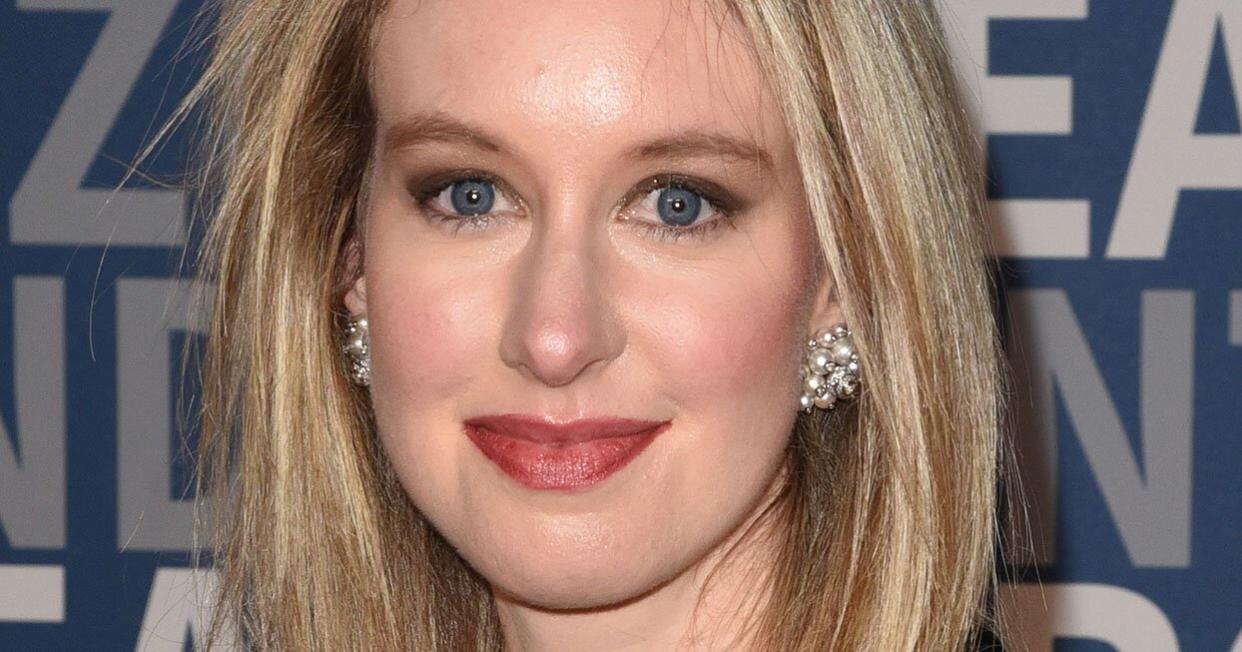Elizabeth Holmes' Diet Might Be Even Crazier Than Her HBO Documentary

Photo: C Flanigan / Getty Images
From her unblinking stare to her unexpectedly baritone speaking voice, Elizabeth Holmes is a truly puzzling person. The founder of the now-defunct health care tech start-up, Theranos, marches to the beat of her own drum-and that applies to her diet, too. Following the premiere of the HBO documentary about Holmes' epic rise and fall, called The Inventor: Out for Blood in Silicon Valley, people are fixated not just on how the world's youngest female self-made billionaire crashed and burned in the span of just a couple of years, but also on how she fuels her body with food. Because Holmes' diet sounds pretty quirky, to say the least. (Related: Why You Should Give Up Restrictive Dieting Once and for All)
ICYDK, Holmes founded Theranos in 2003 when she was only 19 years old, with the idea to create a more efficient, approachable form of blood testing that would only require a finger-prick's worth of blood. Holmes raised millions (which quickly became billions) of dollars to fund this idea. But, long story short, it turned out that she was misleading investors, not to mention the public, about the blood-testing technology. It, uh, kind of didn't work the way she'd claimed-at all. Fast-forward to 2019, and Holmes is now facing criminal fraud charges that might result in jail time, according to Yahoo Finance.
Our mission is a mission worth fighting for https://t.co/W4jWQpkSQA
— Elizabeth Holmes (@eholmes2003) December 1, 2015
So why the interest in Holmes' approach to food? Well, it seems pretty similar to her approach to her work: It's all about utility and efficiency. She's vegan, but apparently, she only avoids meat and dairy because doing so "allows her to function on less sleep," according to Inc. In the absence of animal products, Holmes mostly relies on greens for energy-emphasis on the word "mostly." In his book about Theranos, titled Bad Blood, author John Carreyrou wrote that Holmes typically eats dressing-less salads and green juice (including veggies like spinach, celery, wheatgrass, cucumber, and parsley), and it's all prepared for her by a personal chef. Super casual, right? Sometimes Holmes will jazz up that bland combo with a side of oil-free, whole-wheat spaghetti and tomatoes, according to a 2014 Fortune profile on the now-35-year-old entrepreneur. (Related: Are Green Juices Healthy or Just Hype?)
If you're wondering if she supplements her seeming lack of protein with a ton of caffeine to stay energized, think again. Carreyrou wrote in his book that, with the exception of the occasional chocolate-covered coffee bean, Holmes is not about that caffeinated life. She's claimed that her daily green juice blends are enough to keep her fueled. Uh, if you say so, Liz.
When you walk in for a Theranos lab test, we treat you as we’d like to be treated. As a guest, not a number.https://t.co/H4CmlLTWCr
— Theranos (@theranos) December 9, 2015
There's quite a lot to unpack here about Holmes' diet. For one thing, even though she sips green juice on the reg, that doesn't necessarily mean she's getting enough nutrients. While green juice certainly packs a lot of fresh produce into one convenient serving, "juicing does strip produce of dietary fiber, which is found in the pulp and skin of produce and aids in digestion, regulates blood sugar levels, and keeps you feeling full longer," says Keri Glassman, R.D., as we previously reported. Plus, relying on green juice as your main source of food means you're likely "denying your body essential nutrients from the foods that you're not eating, like lean proteins, healthy fats, and whole grains," Kathy McManus, R.D., director of the department of nutrition at Brigham and Women's Hospital in Boston, previously told us. (Related: How to Get the Most Nutrients Out of Your Food)
Aside from the literal lack of nutrients in Holmes' diet, though, it's the meticulous way she thinks about food that might be most concerning. In Fortune's 2014 profile of the entrepreneur, she admitted that she sometimes looks at her own (or others') blood samples immediately after a meal, claiming she can tell the difference "between when someone has eaten something healthy, like broccoli," and when they "splurge" on something like a cheeseburger.
Food may be fuel, but it's also meant to be enjoyed. Food can bring you happiness, it can bring you closer to the people you love, and it can even help to nudge you outside your comfort zone in an effort to try new things. (Related: Can the Mediterranean Diet Make You Happier?)
To be fair, it's unclear whether Holmes' eating habits have changed at all now that the health care start-up has been dissolved, and she's presumably not working 16-hour days that allow little time for well-balanced meals. Here's to hoping she's embracing a little more variety in her diet these days.
